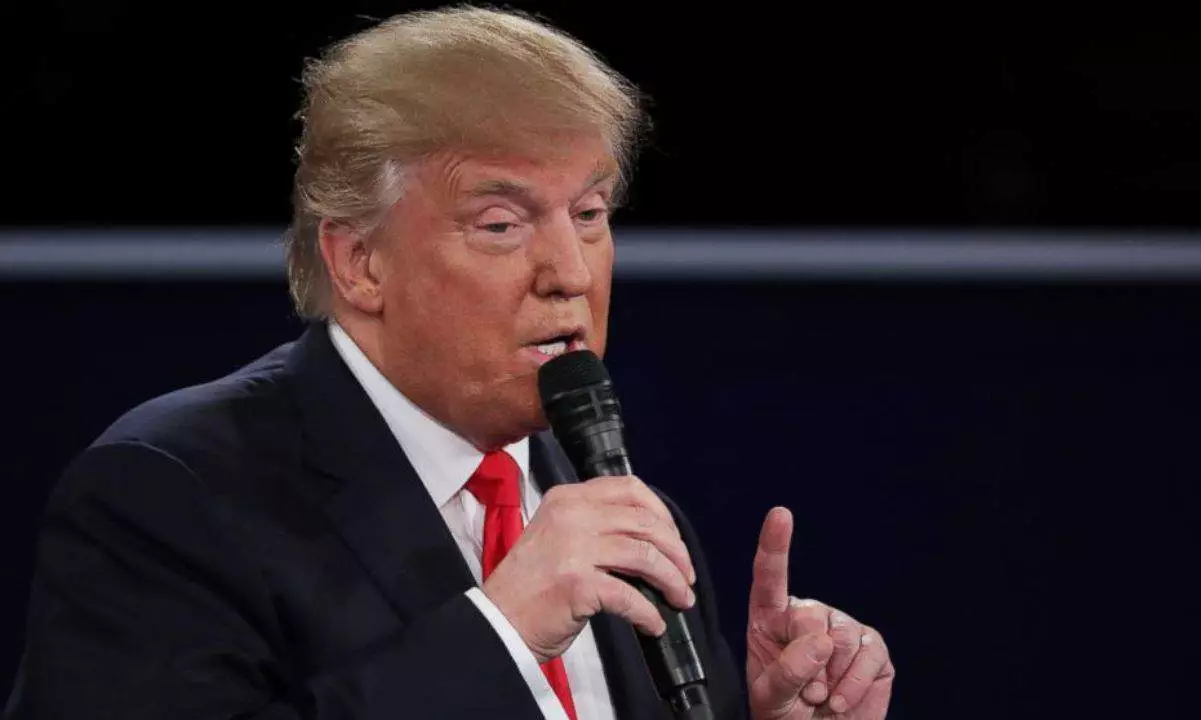In an unprecedented move, former President Donald Trump made headlines by granting pardons to four pivotal players in the cryptocurrency world. The pardoned individuals were associated with BitMEX, a Seychelles-based crypto exchange that has been in operation since 2014. The significance of these pardons goes beyond the individuals involved; they represent a critical moment in the ongoing saga of cryptocurrency regulation and government oversight. This action raises complex questions about justice, accountability, and sectarian favoritism in America’s political landscape, revealing a more profound narrative not just about the individuals pardoned, but about the system that governs economic freedom in the modern age.
Breaking Traditions: Pardoning a Corporation
Pardoning a corporation, as exemplified by BitMEX, marks a radical shift in the application of clemency powers. Traditionally, pardons are reserved for individuals who have committed non-violent crimes and seek to rehabilitate themselves. Yet, by pardoning the founders and top executives of BitMEX, Trump sets a dangerous precedent. Are we endorsing corporate irresponsibility? While many in the crypto community celebrated this decision as a victory against overreach by regulatory authorities, it implies that corporations might evade accountability simply due to political connections or the backing of influential figures.
BitMEX was not a small enterprise; it was charged with significant violations of the Bank Secrecy Act following its guilty plea. The $100 million fine handed down by the DOJ indicates severe misconduct, and alarmingly, it suggests that the administration might prioritize political allegiance over justice. This raises essential inquiries about where America is headed when the rule of law seems to bend for financial technology moguls.
The Embrace of Libertarian Values
Trump’s actions resonate with a libertarian ethos that advocates for minimal government interference—especially in the realms of finance and innovation. By showing leniency toward crypto operators, Trump effectively appeals to a prosperous subset of society that views the state as an adversary rather than a partner. This libertarian approach emphasizes the importance of personal freedom and the responsibility of the individual, elements that are fundamental to the crypto movement.
However, reliance on these ideals may overlook the troubling realities of unfettered capitalism. It is critical to distinguish between protecting innovation and allowing entities to operate without oversight, potentially harming consumers or promoting illicit activities. To herald this revolutionary spirit without striving for balance could foster an environment where ethical values are compromised in favor of profit.
The Corporate Response: Thank You or Just Following Orders?
Responses from the pardoned individuals, notably BitMEX co-founder Benjamin Delo, claim vindication. Delo asserted that the Department of Justice wrongfully targeted BitMEX, positioning it as a scapegoat for broader regulatory failings. Yet, should the rhetoric of ‘being wronged’ absolve them of their prior actions? Delo’s remarks resonate with themes of victimhood but omit accountability, a dangerous narrative in any area of governance or business.
Moreover, gratitude toward Trump does not negate the serious implications of their past conduct. While applauding Trump, Delo’s sentiments signal a potential disconnection from reality; effectively claiming persecution while benefiting from the very system one critiques is a paradox that should spark concern. If BitMEX was so innocent, why plead guilty?
The Speculative Future of Pardons
In the wake of Pardons for BitMEX execs, speculative chatter roams the political landscape, examining who might be next in line for Trump’s clemency. High-profile figures like Sam Bankman-Fried, once a Democratic Party benefactor, are now positioned in the crosshairs of potential leniency alongside other controversial founders including Binance’s Changpeng Zhao and Roger Ver, known as “Bitcoin Jesus.”
The thought of extending pardons to these diverse personalities reflects an unsettling trend: the blending of political loyalty and economic privilege. While the notion of equity and fairness in legal considerations continues to erode, the political theater encapsulated by potential pardons cultivates an ecosystem where the law appears malleable, tailored for the elite interests over the common citizen.
Ultimately, Trump’s decisions are not solely about clemency for a few founders; they represent a flashpoint in the evolving relationship between politics and cryptocurrency. The cultural ramifications within the crypto community are undeniable. While many celebrate this as a sign of freedom, naysayers implore for a rigorous examination of our moral compass—a compass that seems to steer steadily away from justice toward privilege. As the echoes of these pardons reverberate throughout financial and political spheres, we must critically interrogate what they signify for future governance and corporate responsibility. The questions they raise about accountability, ethics, and the future of innovation must not go unexamined in the political discourse moving forward.


Leave a Reply